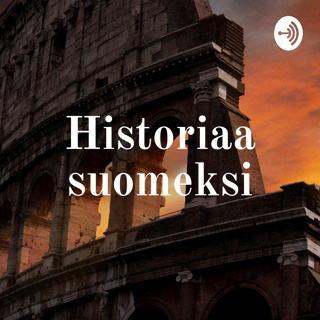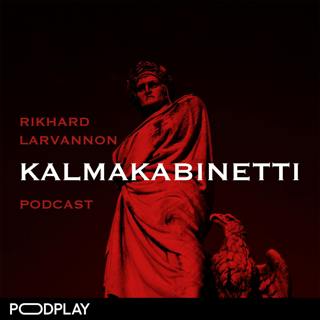
Roman Britain
Melvyn Bragg and guests discuss the Romans in Britain. About 2000 years ago, Tacitus noted that “the climate is wretched”, Herodian said, “the atmosphere in the country is always gloomy”, Dio said “they live in tents unclothed and unshod, and share their women” and the historian Strabo said on no account should the Romans make it part of the Empire because it will never pay its way. But invade they did, and Britain became part of the Roman Empire for almost four hundred years.But what brought Romans to Britain and what made them stay? Did they prove the commentators wrong and make Britain amount to something in the Empire? Did the Romans come and go without much trace, or do those four centuries still colour our national life and character today?With Greg Woolf, Professor of Ancient History at St Andrews University; Mary Beard, Reader in Classics at Cambridge University; Catharine Edwards, Lecturer in Classics and Ancient History at Birkbeck College, London University.
1 Touko 200328min

Youth
Melvyn Bragg and guests discuss the idea of youth. In 1898 Joseph Conrad wrote, “I remember my youth and the feeling that will never come back any more – the feeling that I could last for ever, outlast the sea, the earth, and all men; the deceitful feeling that lures us on to perils, to love, to vain effort – to death…”From antiquity to our own time, the concept of youth, with its promise of possibility and adventure, has been greeted with fascination as well as fear. The ancient Greeks saw the period of youth as dangerous and unpredictable, but how did they seek to control it? How did the Renaissance celebrate the ideals and intellect of youth? Why was 19th century British society so preoccupied with the moral well-being of young people? And does a distinct youth culture still exist? With Tim Whitmarsh, Lecturer in Hellenistic Literature at Exeter University; Thomas Healy, Professor of Renaissance Studies at Birkbeck College, London; Deborah Thom, Lecturer in History at Robinson College, Cambridge.
17 Huhti 200341min

Proust
Melvyn Bragg and guests discuss the life and work Marcel Proust whose novel À La Recherche du Temps Perdu, or In Search of Lost Time, has been called the definitive modern novel. His stylistic innovation, sensory exploration and fascination with memory were to influence a whole body of thinkers, from the German intellectuals of the 1930s to the Bloomsbury set, chief among them Virginia Woolf, and innumerable critics and novelists since. But how did he succeed in creating a 3000 page novel with such an artistic coherence? To what extent did John Ruskin influence Proust? Is his fascination with memory and recall simply a nostalgia for the past? And what impact did he have on the 20th century novel? With Jacqueline Rose, Professor of English Literature at Queen Mary, University of London and author of Albertine; Malcolm Bowie, Master of Christ’s College, Cambridge and author of Proust among the Stars; Dr Robert Fraser, Senior Research Fellow in the Literature Department at the Open University and author of Proust and the Victorians.
10 Huhti 200341min

The Spanish Civil War
Melvyn Bragg and guests discuss the Spanish Civil War which was a defining war of the twentieth century. It was a brutal conflict that polarised Spain, pitting the Left against the Right, the anti-clericals against the Church, the unions against the landed classes and the Republicans against the Monarchists. It was a bloody war which saw, in the space of just three years, the murder and execution of 350,000 people. It was also a conflict which soon became internationalised, becoming a battleground for the forces of Fascism and Communism as Europe itself geared up for war.But what were the roots of the Spanish Civil War? To what extent did Franco prosecute the war as a religious crusade? How did Franco institutionalise his victory after the war? And has Spain fully come to terms with its past?With Paul Preston, Principe de Asturias Professor of Contemporary Spanish History at the London School of Economics; Helen Graham, Professor of Spanish History at Royal Holloway, University of London; Dr Mary Vincent, Senior Lecturer in the Department of History at Sheffield University.
3 Huhti 200341min

The Life of Stars
Melvyn Bragg and guests discuss the life cycle of stars. In his poem Bright Star John Keats wrote, "Bright Star, would I were steadfast as thou art". For Keats the stars were symbols of eternity- they were beautiful and ordered and unchanging - but modern astronomy tells a very different story. Stars, like everything else in the universe, are subject to change. They are born among vast swirls of gas and dust and they die in the stunning explosions we call supernovae. They create black holes and neutron stars and, in the very beginning of the universe, they forged the elements from which all life is made. But how do stars keep burning for millions of years, why do they self-destruct with such ferocity and what will happen to the universe when they all go out?With Paul Murdin, Senior Fellow at the Institute of Astronomy, Cambridge; Janna Levin, Advanced Fellow in Theoretical Physics in the Department of Applied Mathematics & Theoretical Physics at the University of Cambridge; Phil Charles, Professor of Astronomy at Southampton University.
27 Maalis 200328min

Originality
Melvyn Bragg and guests explore the creative force of originality. How far is it to do with origins, how far with the combination of the discoveries of others, which were themselves based on the thoughts of others, into an ever-receding and replicating past? Is invention original? Is original important? Is tradition more interesting and the reworking of what is traditional of greater value than the search for idiosyncrasy? And did our notion of the original genius come as much out of a commercial imperative for individual copyright in the eighteenth century, as a romantic view of human nature which came in, perhaps not co-incidentally, at the same time? In 1800, in his preface to Lyrical Ballads, Wordsworth wrote "Every great and original writer, in proportion as he is great and original, must himself create the taste by which he is to be relished". But did the notion of originality begin with the Romantics in the 18th century, or has society always valued originality? Should we consider Shakespeare an innovator or a plagiarist?To what extent is originality about perception rather than conception and is originality a concept without meaning today?With John Deathridge, King Edward Professor of Music at King’s College London; Jonathan Rée, philosopher and author of Philosophical Tales; Professor Catherine Belsey, Chair of the Centre for Critical and Cultural Theory at Cardiff University
20 Maalis 200341min

Redemption
Melvyn Bragg and guests discuss redemption. In St Paul's letter to the Galatians, he wrote: "Christ has set us free; stand fast therefore, and do not submit again to a yoke of slavery". This conception of Redemption as freedom from bondage is crucial for Judeo-Christian thought. In Christianity, the liberation is from original sin, a transformation from the Fall to salvation - not just for mankind but for individual human beings. The content of that journey is moral, gaining redemption by becoming better.So why is the idea of transformation so appealing to human beings? To what extent were Christian views of Redemption borrowed from Judaism? How did philosophers such as Marx reinterpret the concept of Redemption and can redemption retain its value in a world without God? Does its continuing power signify a deep psychological need in humankind?With Richard Harries, Bishop of Oxford; Janet Soskice, Reader in Modern Theology and Philosophical Theology at Cambridge University; Stephen Mulhall, Fellow and Tutor in Philosophy at Oxford University.
13 Maalis 200328min

Meteorology
Melvyn Bragg and guests discuss meteorology. The Book of Genesis resounds with a terrible act of vengeance, carried out by an angry God seeking to punish his people. And the mechanism with which this is carried out - a catastrophic flood which wipes out evil on earth. In fact, many ancient civilisations believed extreme meteorological phenomena like thunder and lightning, hailstones and even meteors were acts of divine intervention. Running parallel with this belief, however, was also a desire to understand and explain the natural world through rational enquiry and observation. This complex relationship – between the natural world and divinity – has fascinated philosophers, artists and scientists alike from antiquity to our own time. Aristotle, for example, coined the phrase meteorology but to what extent did he link meteorological events to the cosmos and the Gods? How did the development of instrumentation during the Renaissance aid the prediction of weather events? Why did 18th century writers such as Keats feel that these scientific advances stripped the skies of its mystique and romance? And why does meteorology continue to fascinate and mystify to this day? With Vladimir Jankovic, Wellcome Research Lecturer at the Centre for the History of Science, Technology and Medicine at Manchester University;Richard Hamblyn, writer; Liba Taub, Director of the Whipple Museum of the History of Science at Cambridge University.
6 Maalis 200328min





















